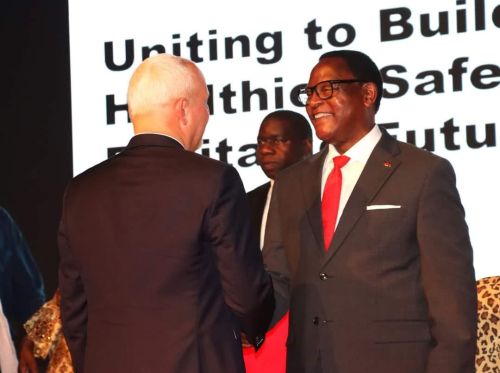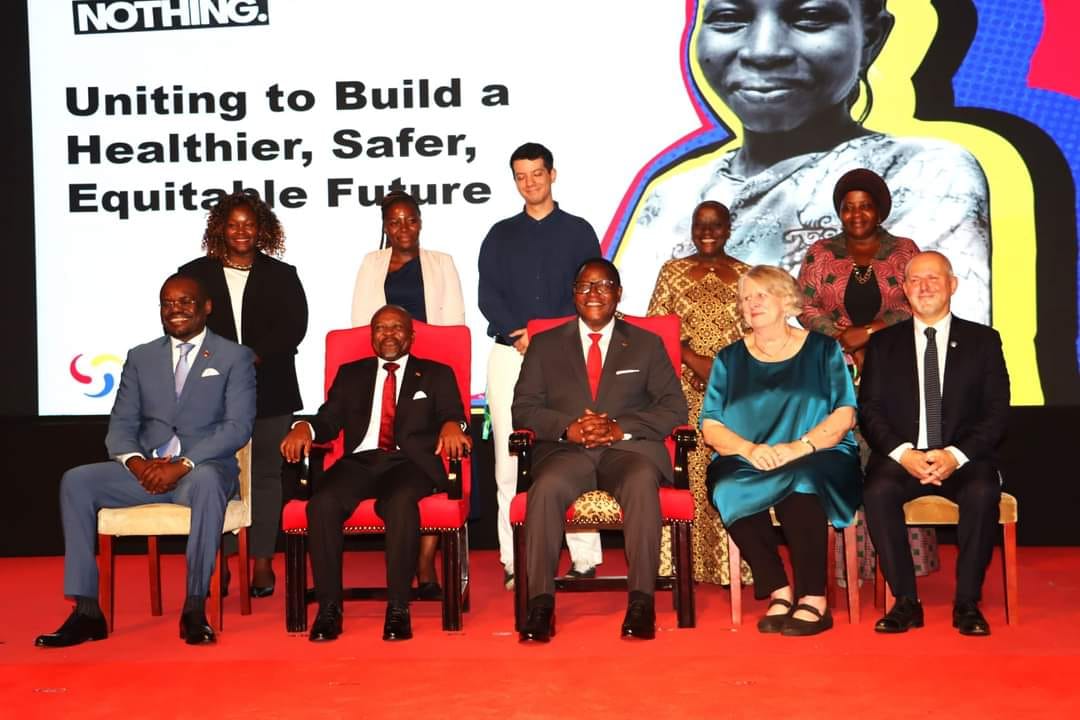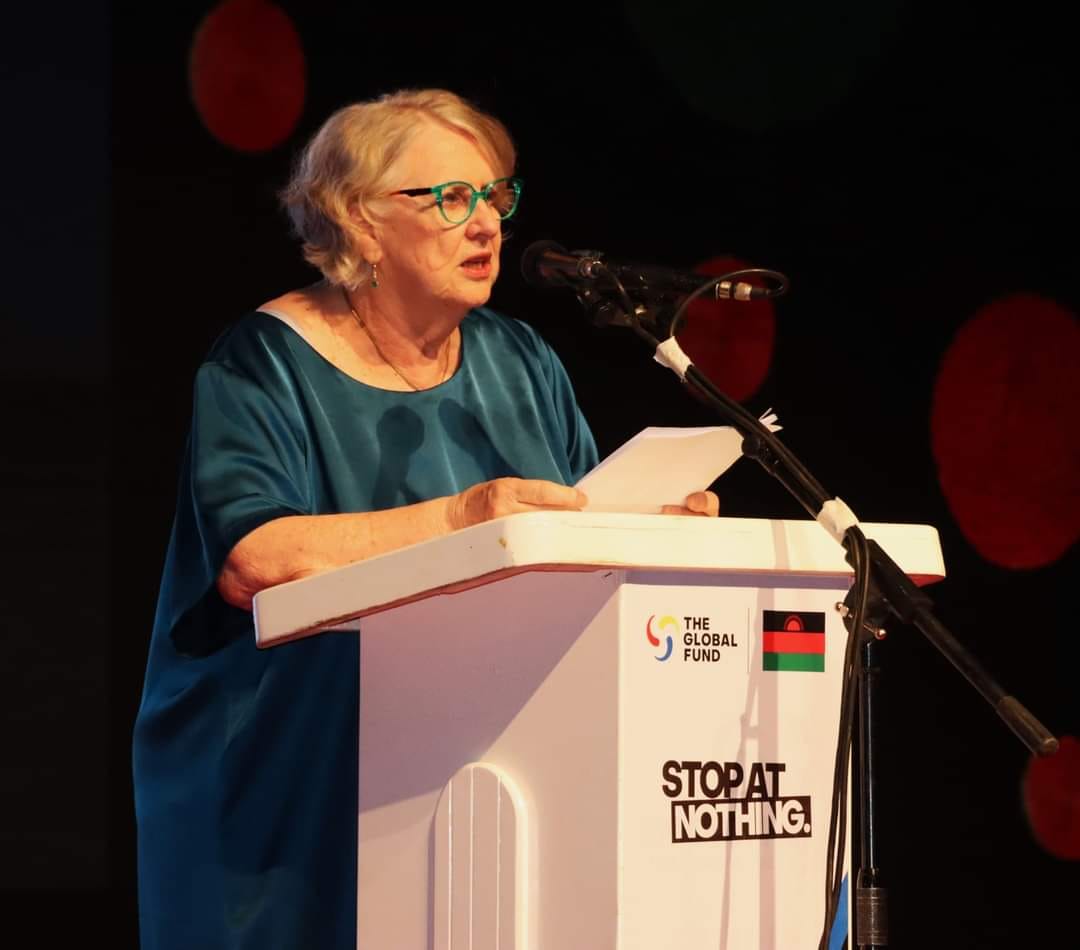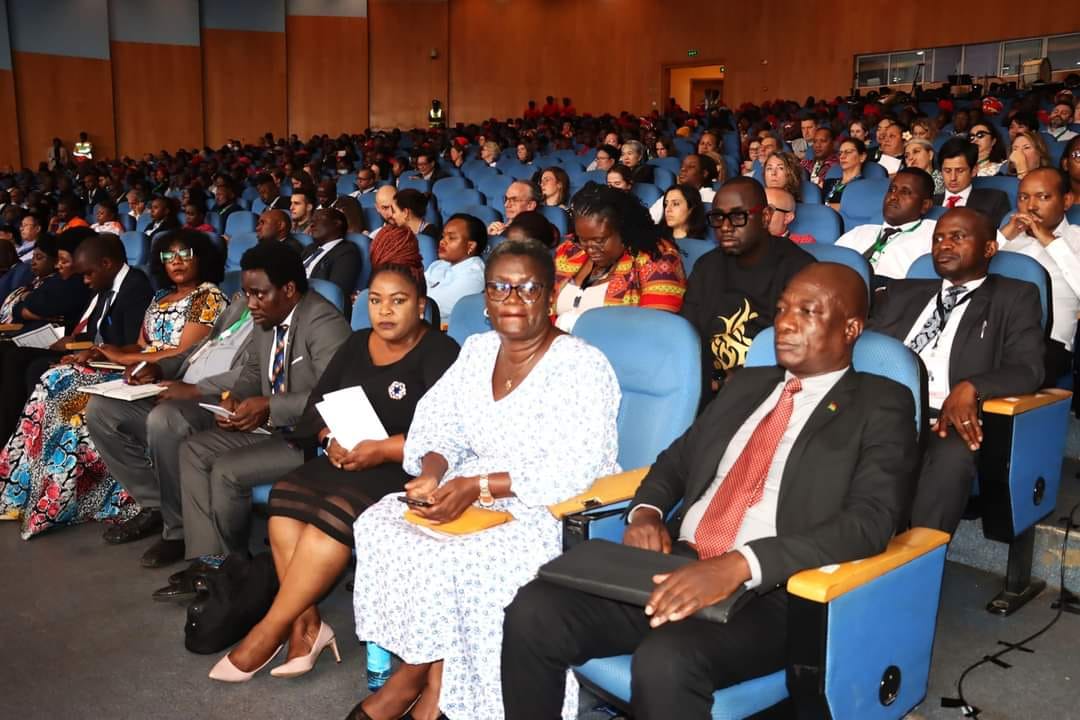
Malawi’s President launches the Global Fund 52nd Board Meeting
President Dr. Lazarus McCarthy Chakwera of Malawi expressed deep appreciation for the Global Fund's continuous support, which has been instrumental in improving the health of Malawians.
20/11/2024

LILONGWE, Malawi – November 19, 2024 – During the opening of the 52nd Global Fund Board Meeting held at the Bingu International Convention Centre, President Dr. Lazarus McCarthy Chakwera of Malawi expressed deep appreciation for the Global Fund's continuous support, which has been instrumental in improving the health of Malawians.
With the theme “Stop at Nothing: Uniting to Build a Healthier, Safer, Equitable Future,” the board meeting runs from November 18 to 22, drawing attention to the ongoing challenges faced in global health. President Chakwera highlighted that the partnership with the Global Fund has enabled Malawians to access free medical services in public hospitals, significantly bolstering the country's fight against HIV/AIDS, malaria, and tuberculosis.
“The Global Fund has dedicated its funds to combating HIV, tuberculosis, and malaria. This shows the significant role it has played in Malawi’s healthcare progress,” Chakwera stated. He noted the essential support received during times of crisis, reflecting on how the funds have assisted those affected by these diseases.
 Global Fund Board Chairperson Roslyn Morauta emphasized the importance of corrective actions to combat HIV, tuberculosis (TB), and malaria. In her opening remarks, she acknowledged the challenges faced by countries, such as conflicts and natural disasters, but highlighted the significant progress made in tackling these critical health issues. “We have to commit ourselves in the fight against HIV, TB, and malaria so that we have a free generation,” Morauta urged.
Global Fund Board Chairperson Roslyn Morauta emphasized the importance of corrective actions to combat HIV, tuberculosis (TB), and malaria. In her opening remarks, she acknowledged the challenges faced by countries, such as conflicts and natural disasters, but highlighted the significant progress made in tackling these critical health issues. “We have to commit ourselves in the fight against HIV, TB, and malaria so that we have a free generation,” Morauta urged.
Jean Kaseya, Director General of the Africa Centre for Disease Control and Prevention, stressed the need for African nations to show greater commitment by implementing health programs. He called for increased support for African countries involved in the local production of essential medicines, expressing concern that Africa often relies on external vaccine supplies during health crises, despite having the potential to develop its own treatments.
Dr. Jérôme Salomon, the World Health Organization’s Assistant Director-General for Universal Health Coverage, Communicable and Non-Communicable Diseases, reinforced the importance of collaboration in an era of limited funding. “It is important for countries to share stories in combating diseases, as it helps to build resilient communities,” he remarked.
As part of the meeting, President Chakwera toured various pavilions showcasing impactful projects supported by the Global Fund, emphasizing a collaborative approach to healthcare that has seen Malawi make significant strides since its partnership began in 2003. Notably, the country has met the United Nations Aids agency targets of having 95 percent of individuals with HIV knowing their status, receiving treatment, and achieving viral load suppression.
 Malawi’s progress in controlling epidemics is a testament to the power of partnership and a reminder of the vital role organizations like the Global Fund play in enhancing health outcomes for vulnerable populations.
Malawi’s progress in controlling epidemics is a testament to the power of partnership and a reminder of the vital role organizations like the Global Fund play in enhancing health outcomes for vulnerable populations.
